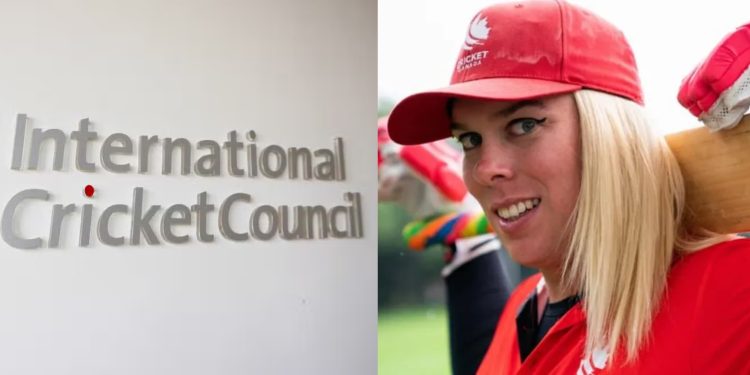The International Cricket Council (ICC) has announced a ban on transgender individuals from participating in the women’s competition. The ICC says the move is aimed at safeguarding the well-being of female athletes.
The ICC has made this decision after conducting a thorough scientific review and a nine-month consultation, with the primary goal of safeguarding the integrity of the international women’s game and ensuring player safety. This move aligns the ICC with other sports such as rugby union, swimming, cycling, athletics, and rugby league, all of which have implemented similar measures in recent years due to concerns about fairness or safety.
Geoff Allardice, the ICC chief executive, explained the decision by stating, “The changes to the gender eligibility regulations resulted from an extensive consultation process and are founded in science and aligned with the core principles developed during the review. Inclusivity is incredibly important to us as a sport, but our priority was to protect the integrity of the international women’s game and the safety of players.”
This policy change comes in the wake of controversy just two months ago when Canada’s Danielle McGahey became the first transgender cricketer to participate in an official international match during a women’s T20 fixture against Brazil.
According to an official release from the International Council, men who have undergone gender transition to become women will no longer be permitted to participate in women’s cricket. This decision, reached after a nine-month consultation process, prioritises the protection of the integrity of the women’s game, safety, fairness, and inclusion.
The statement outlines the key principles behind the new policy, emphasising that any individual who has experienced male puberty, regardless of any surgery or gender reassignment treatment undergone, will be ineligible to participate in international women’s cricket.
The release further discloses that Sri Lanka faces suspension from ICC events for alleged breaches of its membership obligations.
Led by the ICC Medical Advisory Committee, chaired by Dr. Peter Harcourt, the review focused solely on gender eligibility for international women’s cricket. It clarifies that gender eligibility at the domestic level is subject to each member board’s discretion, potentially influenced by local legislation.
While emphasising the sport’s commitment to inclusivity, the release underscores the paramount importance of protecting the integrity of the international women’s game and ensuring the safety of players.
The International Cricket Council, established in 1909 as the Imperial Cricket Conference, serves as the global governing body for cricket. Renamed the International Cricket Conference in 1965 and adopting its current name in 1987, the ICC oversees the regulation and development of the sport on an international scale.
This ban on transgender participation aligns with the evolving landscape of debates about gender in sports, with previous adjustments made by organizations like World Athletics in 2019 and further exclusions implemented in March 2023 for male-to-female transgender athletes who have undergone male puberty from female World Rankings competitions.



